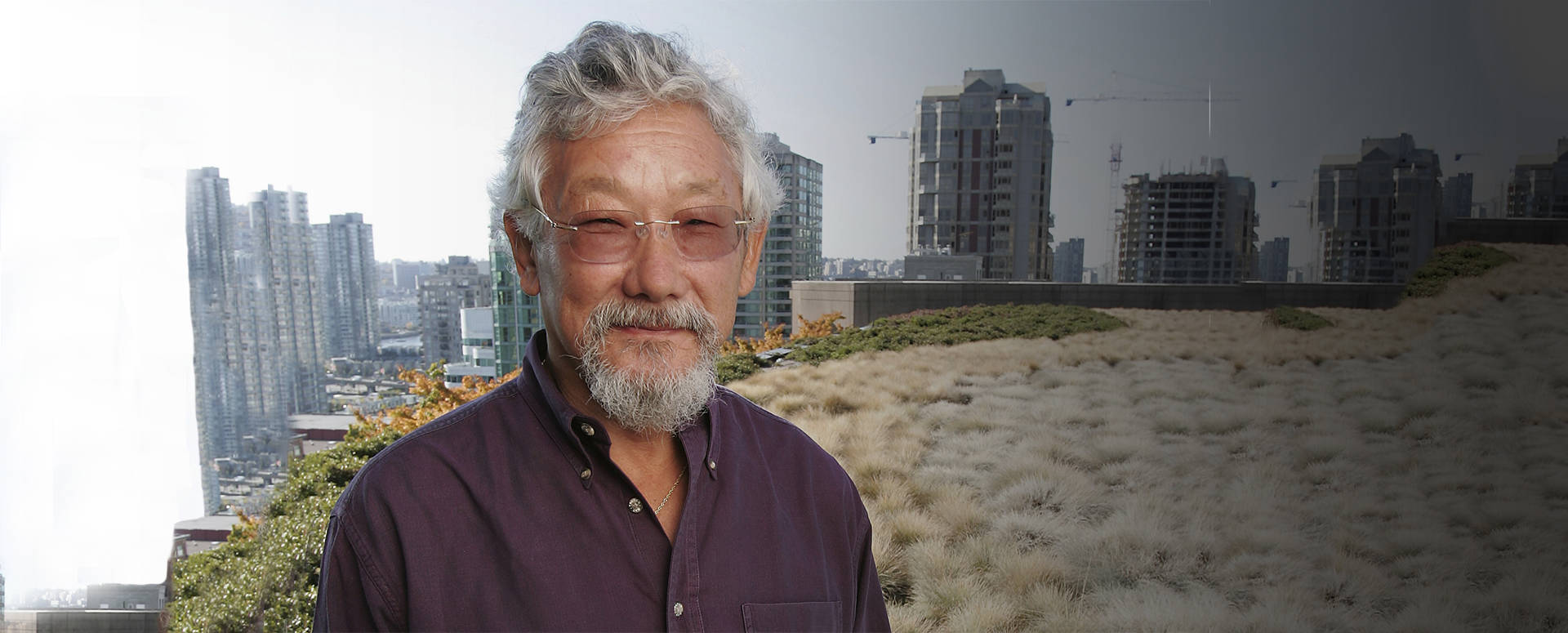
David Suzuki
Environmentalist & Scientist
David Suzuki
Environmentalist & Scientist
Biography
Dr. David Suzuki is a scientist, broadcaster, author, and co-founder of the David Suzuki Foundation.
He is Companion to the Order of Canada and a recipient of UNESCO's Kalinga Prize for science, the United Nations Environment Program medal, the 2012 Inamori Ethics Prize, the 2009 Right Livelihood Award, and UNEP’s Global 500. Dr. Suzuki is Professor Emeritus at the University of British Columbia in Vancouver and holds 29 honorary degrees from universities around the world.
He is familiar to television audiences as host of the CBC science and natural history television series The Nature of Things, and to radio audiences as the original host of CBC Radio's Quirks and Quarks, as well as the acclaimed series It's a Matter of Survival and From Naked Ape to Superspecies.
In 1990 he co-founded with Dr. Tara Cullis, The David Suzuki Foundation to “collaborate with Canadians from all walks of life including government and business, to conserve our environment and find solutions that will create a sustainable Canada through science-based research, education and policy work.”
His written work includes more than 55 books, 19 of them for children. Dr. Suzuki lives with his wife and family in Vancouver, B.C.
Speech Topics
The Challenge of the 21st Century: Setting the Bottomline in the Anthropocene
In the past century, humanity has undergone an explosive change in numbers, science, technology, consumption and economics, that have endowed us with the power to alter the biological, physical and chemical properties of the planet.
It is undeniable that the atmosphere and climate are altered; air, water and soil are fouled with toxic pollutants; oceans are depleted; forests are being cleared; and species are disappearing.
Now that most people live in large cities, our relationship with nature is less obvious.
Computers and telecommunications fragment information so that we can no longer recognize the interconnectivity of everything in the world.
Globalization of the economy renders the entire planet a source of resources and all people a market for products, while local communities and local ecosystems are negatively impacted (for example, large scale pig farms are raised in Canada for an Asian market while the water, air and soil surrounding the hog farms are negatively impacted).
Traditional people refer to the Earth as their “Mother” and tell us we are made of the four sacred elements: Earth, Air, Fire and Water.
Today science is verifying this ancient wisdom and defines a different set of priorities that should become our bottom line for the 21st century:
- We are biological beings with an absolute dependence on clean air, water, soil and sunlight for our wellbeing and survival.
- The web of all life on Earth (biodiversity) is responsible for cleansing, replenishing and creating air, water, soil and captured sunlight.
- Diversity at the genetic, species, ecosystem and cultural level is critical for long term resilience and adaptability.
- We are social animals with an absolute need for love to realize our full human potential; maximal opportunity for love is ensured with strong families, communities, full employment, justice, equity, freedom from terror and war.
- We are spiritual beings who need to know that there are forces that impinge on our lives that lie outside our understanding or control; that nature that gave us birth, will persist after we die; that there are sacred places where humans come with respect and reverence.
Human beings are one species among perhaps 10 to 15 million other species on whom we are ultimately dependent for our wellbeing.
Humanity needs to rediscover humility and our place in the world so that we and the rest of life can continue to flourish.
The way we see the world shapes the way we treat it. Perspective is shaped by our values, believes and experiences.

)
)
)
)